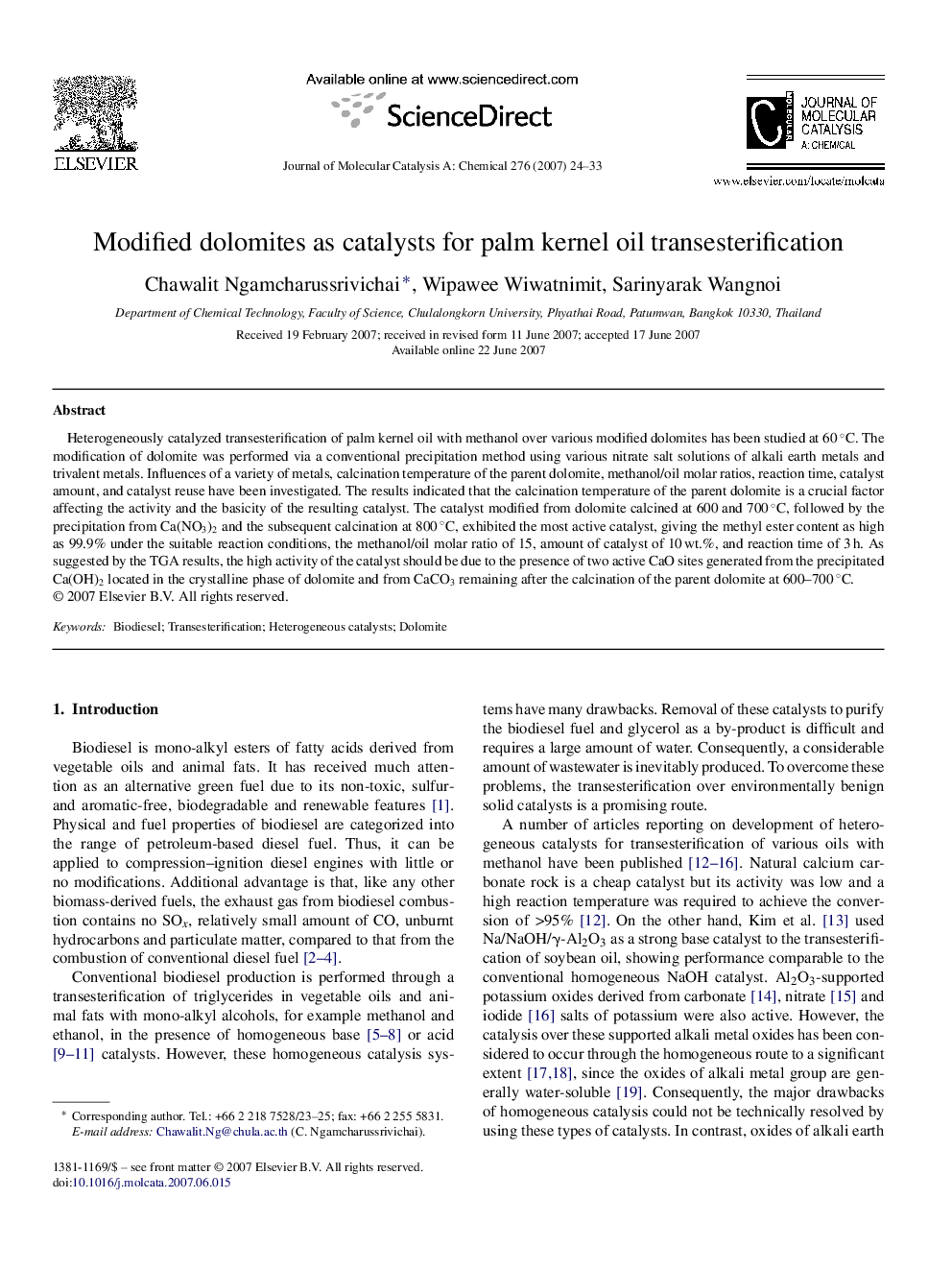| Article ID | Journal | Published Year | Pages | File Type |
|---|---|---|---|---|
| 68670 | Journal of Molecular Catalysis A: Chemical | 2007 | 10 Pages |
Heterogeneously catalyzed transesterification of palm kernel oil with methanol over various modified dolomites has been studied at 60 °C. The modification of dolomite was performed via a conventional precipitation method using various nitrate salt solutions of alkali earth metals and trivalent metals. Influences of a variety of metals, calcination temperature of the parent dolomite, methanol/oil molar ratios, reaction time, catalyst amount, and catalyst reuse have been investigated. The results indicated that the calcination temperature of the parent dolomite is a crucial factor affecting the activity and the basicity of the resulting catalyst. The catalyst modified from dolomite calcined at 600 and 700 °C, followed by the precipitation from Ca(NO3)2 and the subsequent calcination at 800 °C, exhibited the most active catalyst, giving the methyl ester content as high as 99.9% under the suitable reaction conditions, the methanol/oil molar ratio of 15, amount of catalyst of 10 wt.%, and reaction time of 3 h. As suggested by the TGA results, the high activity of the catalyst should be due to the presence of two active CaO sites generated from the precipitated Ca(OH)2 located in the crystalline phase of dolomite and from CaCO3 remaining after the calcination of the parent dolomite at 600–700 °C.
Graphical abstractTransesterification of palm kernel oil with methanol over modified dolomite catalysts has been studied. The modified dolomites were prepared via a conventional precipitation. The dolomite pre-calcined at 600 and 700 °C, followed by the precipitation with Ca(NO3)2 solution and the subsequent calcination at 800 °C proved to be the most active catalyst, giving the methyl esters content of 99.9%. Figure optionsDownload full-size imageDownload as PowerPoint slide
